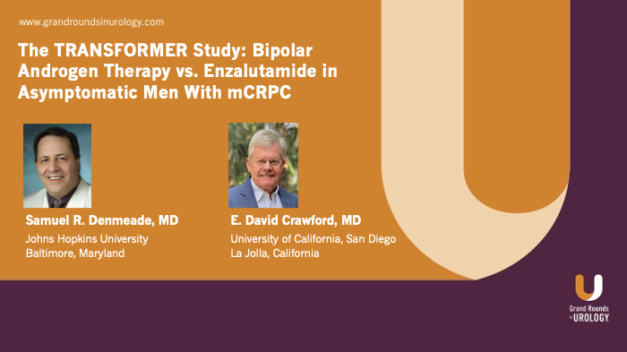The TRANSFORMER Study: Bipolar Androgen Therapy vs. Enzalutamide in Asymptomatic Men With mCRPC
E. David Crawford, MD, Editor-in-Chief of Grand Rounds in Urology and Professor of Urology at University of California, San Diego discusses the TRANSFORMER study and bipolar androgen therapy with Samuel R. Denmeade, MD, Professor of Oncology and Urology at Johns Hopkins University and co-leader of the Prostate Cancer Program for the Johns Hopkins Kimmel Cancer Center. Dr. Denmeade presents the study results, outlines the conceptual background, and notes the benefits of bipolar androgen therapy. TRANSFORMER compared enzalutamide with bipolar androgen therapy, a treatment in which testosterone levels are oscillated between low and high levels in order to prevent the adaptation of prostate cancer cells to a low-androgen environment. Results indicate that while bipolar androgen therapy may not have superior progression free survival rates when compared with enzalutamide, it can improve patient response to enzalutamide, suggesting that further research on sequential treatment is warranted. Notably, some men undergoing bipolar androgen therapy experienced a return in sexual function and also better physical functioning which contributed to improved quality of life.
Read More














